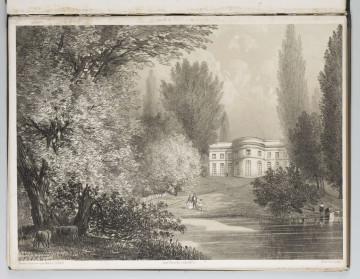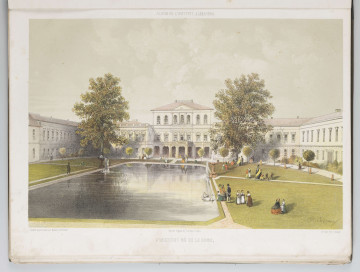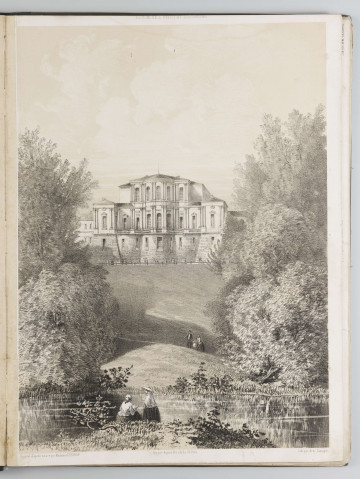
Palais de Marynki vu de l'ile
1860
National Museum in Lublin
Part of the collection: Lubliniana. Painting views of Lublin and the Lublin Region
Aleksander Gierymski – an excellent luminary, author of numerous landscapes, including nocturnes, was born in 1850 in Warsaw. Between 1868 and 1869 he studied at the Academy of Fine Arts in Munich. He collaborated as an illustrator with the Warsaw-based periodical “Kłosy” and “Tygodnik Ilustrowany”. The artist spent a large part of his life traveling around Europe. After 1885, he lived mainly in Italy: in Padua, Venice, Florence and Rome. He became known as an artist who was open to a new medium at that time - photography, which met with unfavourable criticism. One of the advantages of photography is the ability to show the stages of movement of figures and record the views seen, giving the opportunity for further work on the image. Artists who recognized the advantages of photography include: Edgar Degas, Auguste Rodin, Constantin Brâncuşi, Man Ray or Józef Brandt.
Current research has confirmed Gierymski's use of photography, for instance when working on the famous painting Jewess with Oranges. Although the details of his use of this medium are not known, there are indications to consider its relevance in painting, as evidenced by both Michal Andriolli's account: “Puławy always offer a warm welcome. There are many Varsovians in the streets: we have seen Prus and Gierymski with Brandl's camera on his neck”, as well as Gierymski's own words from a letter to P. Dziekoński from 1886: “With my camera I hope to make many motifs”.
The photographs taken by Gierymski and the way he used them are not known. On the basis of comparative analysis, researchers find similarities between the motifs visible in Konrad Brandel's photographs and the paintings of Aleksander Gierymski.
As if in a photographic frame, the artist rendered the realistic appearance of the places depicted. The double-sided gouache on the obverse depicts a traffic route of Podwale Street, which does not exist today, adjacent to the façade of St. Adalbert's Church in Lublin. The Trinity Tower can be seen in the distance. The reverse contains a view of the palace in Puławy.
Klara Sadkowska
Author / creator
Dimensions
cały obiekt: height: 20,4 cm, width: 15,4 cm
Object type
drawing
Technique
painting technique
Material
paper, aquarel, gouache
Creation time / dating
Creation / finding place
Owner
The National Museum in Lublin
Identification number
Location / status

1860
National Museum in Lublin

1860
National Museum in Lublin

1860
National Museum in Lublin
DISCOVER this TOPIC
Museum of King Jan III's Palace at Wilanów
DISCOVER this PATH
Educational path